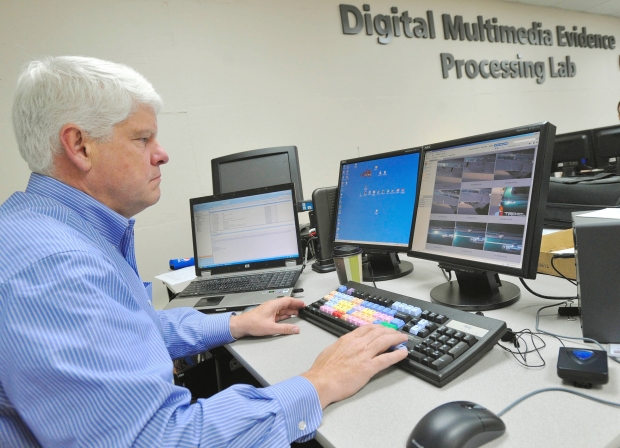Faced with the daunting prospect of having to pore through thousands of images and hours of video, investigators probing the twin bombings at the Boston Marathon may well turn to Vancouver for help, a forensic video analyst in the United States said Tuesday.
Following the Stanley Cup riots in 2011, Vancouver police had to process more than 5,000 hours of video collected from numerous sources.
“The understanding of the power of this evidence, of social media, and the ability of law enforcement to leverage the Internet as successfully as Vancouver did was unprecedented. No one’s done it since,” said Grant Fredericks, an instructor with the non-profit Law Enforcement and Emergency Services Video Association, which helped Vancouver process the video.
“I can guarantee they will be looking at that Vancouver model.”
At a news conference in Boston Tuesday, police and federal agents investigating the detonation of two bombs that killed three people and wounded more than 170 appealed to the public for any video, audio and photos — even images that people might not think are significant.
“There has to be hundreds, if not thousands, of photos and videos” state police Col. Timothy Alben said.
Boston police Commissioner Edward Davis said investigators had also gathered a large number of surveillance tapes from businesses in the area and intended to go through each video frame by frame.
“This is probably one of the most photographed areas in the country yesterday,” he said.
Fredericks, a former Vancouver officer, said it would not surprise him if, in the coming days, authorities in Boston become overwhelmed with evidence, as Vancouver was in the immediate aftermath of the Stanley Cup riot.
“They’ll be saying, ‘Uh-oh. Now what do we do?’” he said.
The day after the riot, Vancouver police gave out instructions for how the public could anonymously send videos to investigators.
A couple months later, riot investigators took the “extraordinary” step of launching a website loaded with images of suspected rioters and asking for the public’s help in identifying those who were involved in destroying businesses, looting stores or setting fires.
Investigators also took all their video evidence to a one-of-a-kind multimedia lab at the University of Indianapolis equipped to process large volumes of video data.
There, they teamed up with Fredericks and a “response team” of about 50 forensic video experts from Canada, the U.S. and Britain.
For two weeks, the analysts converted each piece of video into a standard format and then “tagged” the evidence by assigning numeric codes to each suspect based on their physical characteristics, such as the type and colour of clothing they were wearing.
Once all the codes were entered into a video management system, investigators could return to Vancouver and query the system to see if a person suspected of committing a crime at one location might also have popped up at other locations that same night.

The same method of cataloguing video data could be used in the Boston case, Fredericks said.
Initially, investigators reviewing video from the marathon will likely be homing in on men wearing backpacks who seem out of place. Once a suspect has been identified, the database can be queried to see if that same person turns up elsewhere.
Investigators will want to know what method of transportation they used and whether they were with anyone else.
“Vancouver has developed processes and procedures that the federal government in the U.S. would have a hard time matching. The FBI isn’t in the business of working with the public to gather evidence like this,” Fredericks said.
“The ability to mass process and the ability to examine thousands of hours of video requires the kind of model that Vancouver set up — it requires eyes, a lot of people.”
Unlike what TV crime shows might suggest, “there’s no automated process to do it.”
Const. Brian Montague, a spokesman for the Vancouver Police Department, said Tuesday he was not aware of any requests for assistance in the Boston case.
But, “if asked, we would assist in any way we could.”



Comments